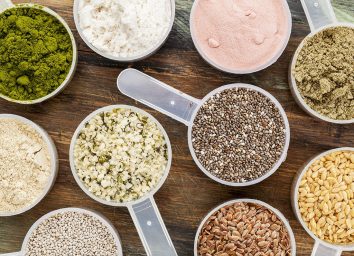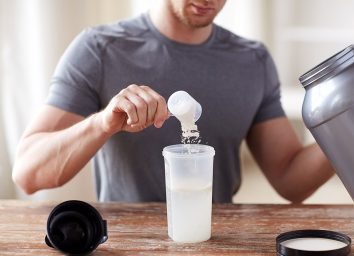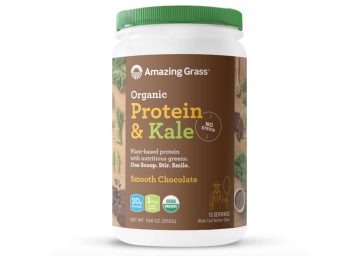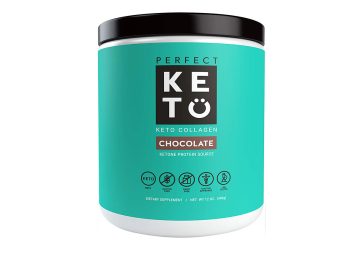Does Protein Powder Actually Expire

Maybe you're looking to Hulk-up. Maybe you heard protein powder is a busy dieter's BFF. Or maybe your doc said protein powder could help fill your nutritional gaps. Whatever the reason, you've started pounding protein shakes to boost your daily intake of the macronutrient—without having to load up on boiled eggs.
Here's the thing: even if you're scooping the goods every day, it can be hard to get through a tub of the powdery goodness before its expiration date.
That's why we turned to Lisa Richards CNC, nutritionist and founder of The Candida Diet and health writer Anju Mobin to find out: Can the muscle-supporting supplement actually expire, or is that date on the side of the tub just for decoration? Scroll down for the answer—plus learn what happens if you eat protein powder past the expiration date.
Wait, so can protein powder expire?
Yes, protein powder can expire—and that includes all kinds of protein powder: pea, hemp, whey, and so on. "All forms of protein powder have an end of shelf life, and can expire," says Richards.
But here's the thing: the stamped-on expiration date isn't the best way to tell, according to Mobin. "Expiration dates are just an estimate," she says.
How to tell if your protein powder is expired
If not by the expiration date, how can you tell if the powder is good-to-eat or better in the trash? Follow these four steps.
1. Do a sniff test
While it won't smell anywhere near as bad as soured milk, bad protein powder will smell funky when they're donezo, according to Mobin. She calls out that this step is especially important for non-vegan, whey protein powders, which go bad more quickly than vegan ones.
2. Eyeball it
Peek into the container—see any blue, dark-grey, or green-colored particles? Get rid of it, because those particles are mold. "The presence of mold is a sure sign the protein powder's gone bad," says Richards.
If there's no mold, but there are other mysterious clumps and lumps in the tub, you still need to get rid of it. "When the powder does this, it's a sign the powder has been exposed to water or moisture," explains Richards. And "moisture makes it easier for things like microbes and bacteria to grow in the container, which can make it go bad more quickly," she says.
While most protein powders are packaged in air-tight containers, there are other ways moisture can get in. For example: storing the container in a super warm and wet environment (like a bathroom cabinet or gym locker), or using a not-completely-dry scooper can introduce moisture to the supplement. "Even opening the tub right after a workout when you're still sweaty, and getting a sweat droplet into the powder can cause it to spoil faster," says Mobin.
3. Finally, taste it
If it doesn't smell off and there's no obvious signs of mold or moisture, do a little taste test. Add a pinch of powder to water and give it a sip. Tastes different than usual? Toss it. If not, consume happily!
Is consuming protein powder past its expiration date dangerous?
"While I don't recommend eating foods past their expiration date," says Mobin, "I'd be lying if I said I immediately throw out my protein powders the second they go past their expiration date if there's no other sign of them being expired."
So long as it's not showing any of the above signs of being spoiled, it's not necessarily dangerous to consume protein powder past its expiration date. It just may not be as potent. That's because, according to research, overtime sugar can interact with protein, and cause can breakdown of lysine, which is one of the amino acids present in protein powder. Lose some of the lysine and you'll lose some of the protein content of the mix.
Another downside of eating old protein powder? It'll taste less than great—assuming you liked the way it tasted to begin with. If not, we recommend ditching your tub and trying one of these nine best tasting protein powders. Or, forgoing powder entirely for the pre-made protein shakes nutritionists swear by.








